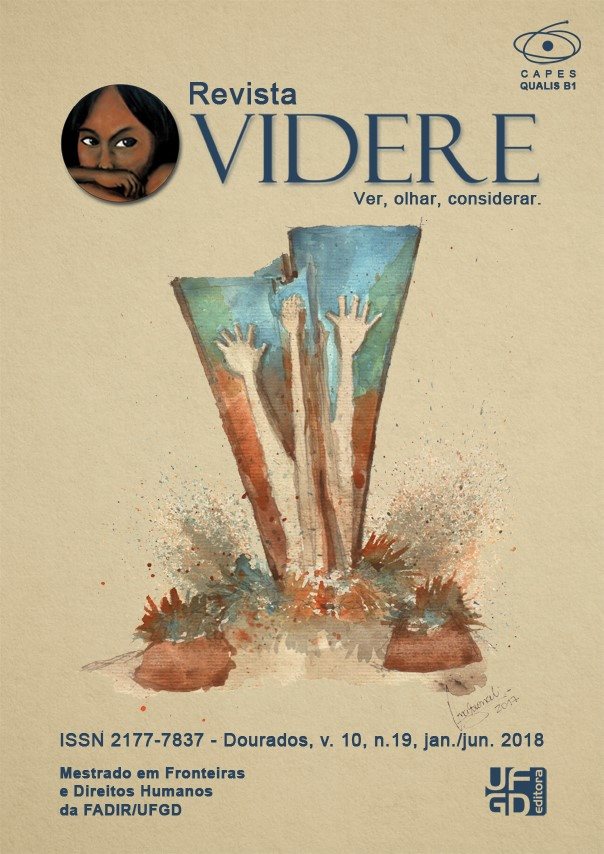A contribuição das instituições: o impacto no desenvolvimento econômico dos estados
DOI:
https://doi.org/10.30612/videre.v10i19.6211Keywords:
institucionalização. Desenvolvimento socioeconômico. Difusão cultural. Nova economia internacional.Abstract
Estudo bibliográfico e analítico para demonstrar a importância da investigação e entendimento das relações que as instituições de um país com suas variáveis socioeconômicas. Para averiguar estas informações adotou-se como referência os apontamentos feitos por Douglass C. North, especialmente sob o prisma da Nova Economia Institucional. Será apresentada a teoria construtivista de Relações Internacionais como contrapeso ao modelo racionalista tradicional, e a importância que será dada às variáveis intangíveis da vida social humana ajudará a trazer luz aos tópicos trabalhados quando do estudo da importância das instituições, criadas pelos indivíduos para regular a si mesmos. Para os fatores relacionados ao processo das instituições, será resgatada a importância de uma das tendências evolutivas do Direito Internacional Público como destacado por Jorge Miranda e amplamente revisado por Valério de Oliveira Mazzuoli, a funcionalização. Destaca-se que o processo de institucionalização, nos países e no Sistema Internacional, tem por meta o desenvolvimento da estrutura humana, suas origens e possibilidades. Quanto a análise sobre quais benefícios podem ser auferidos por um país, do curto ao longo prazo, no aproveitamento eficiente de suas instituições, utiliza-se da Política Econômica Internacional para demonstrar como trazer a experiência de países mais desenvolvidos ao contexto interno de um Estado em desenvolvimento.Downloads
Downloads
Published
How to Cite
Issue
Section
License
Authors must accept the publication rules when submitting the journal, as well as agree to the following terms:
(a) The Editorial Board reserves the right to make changes to the Portuguese language in the originals to maintain the cultured standard of the language, while respecting the style of the authors.
(b) Authors retain the copyright and grant the journal the right to first publication, with the work simultaneously licensed under the Attribution-NonCommercial-ShareAlike 3.0 Brazil (CC BY-NC-SA 3.0 BR) that allows: Share - copy and redistribute the material in any medium or format and Adapt - remix, transform, and create from the material. CC BY-NC-SA 3.0 BR considers the following terms:
- Attribution - You must give the appropriate credit, provide a link to the license and indicate whether changes have been made. You must do so under any reasonable circumstances, but in no way that would suggest that the licensor supports you or your use.
- NonCommercial - You may not use the material for commercial purposes.
- Sharing - If you remix, transform, or create from material, you must distribute your contributions under the same license as the original.
- No additional restrictions - You may not apply legal terms or technological measures that legally restrict others from doing anything that the license permits.
(c) After publication, authors are allowed and encouraged to publish and distribute their work online - in institutional repositories, personal page, social network or other scientific dissemination sites, as long as the publication is not for commercial purposes.



















